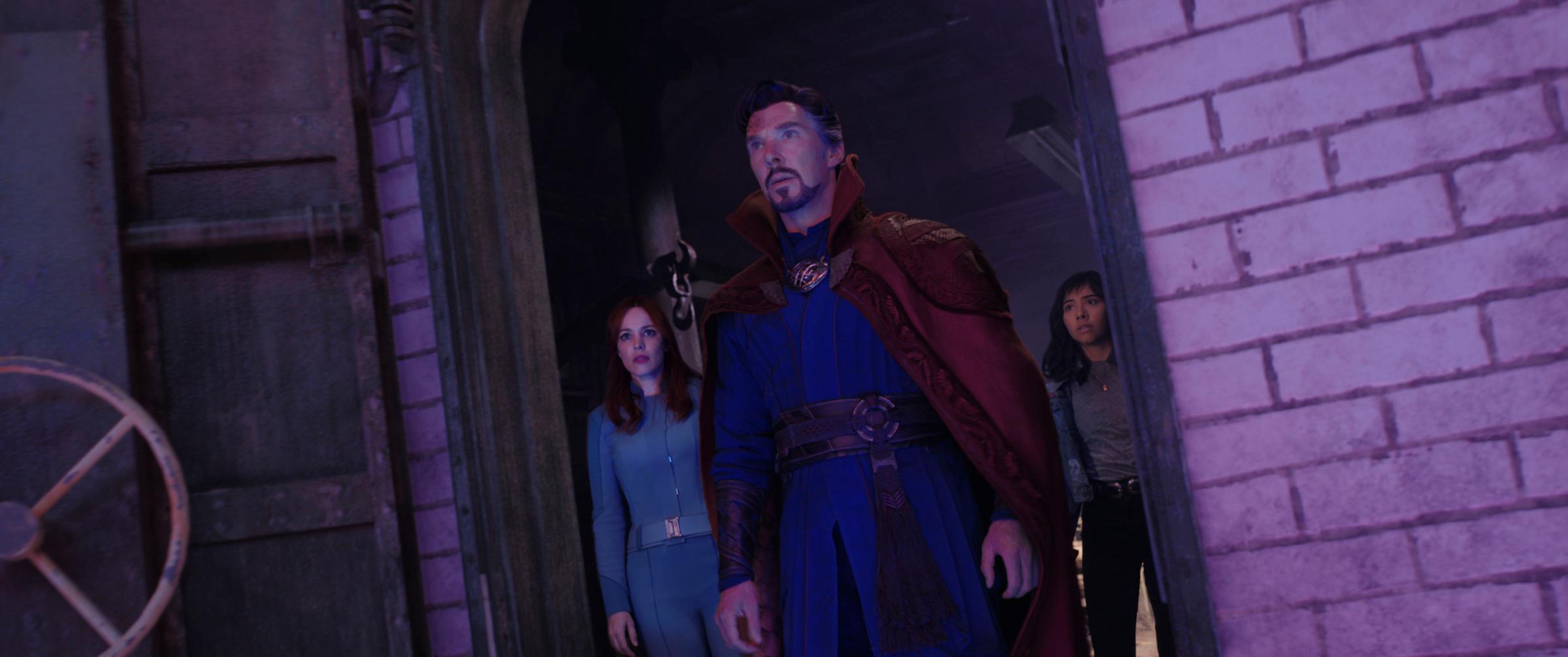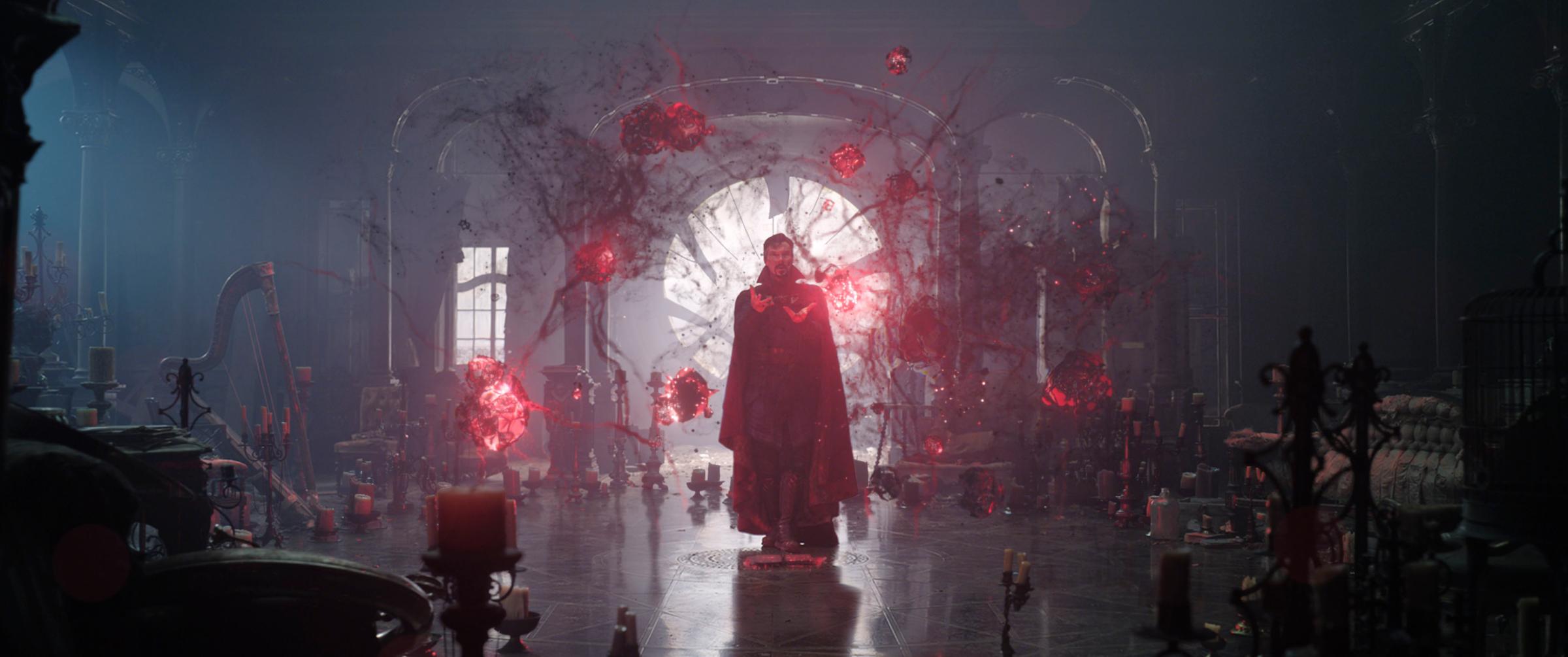Even though Marvel Cinematic Universe movies are now generally made by either big-name directors or young upstarts with an indie hit under their belt, it’s still hard to discern auteurist fingerprints on any given project. The action scenes always have a directed-by-committee feel, because they basically are: you need serious technicians to orchestrate all those characters flying to and fro, opening portals into new worlds with their laser eyes, or with lightning bolts jabbing forth from their fingertips, or with a can opener, a leaf blower, whatever they’ve got handy. Still, there are good reasons for terrific directors to take on these movies, which are the same reasons so many actors want to be in them: they’re the chief currency of the culture right now, and if an artist’s goal to is to reach people with a work of the imagination—even if that vision is essentially run through a Play Doh Pumper before it reaches the screen—who wants to be left out?
The best thing you can say about the moderately entertaining, if predictably excessive, Doctor Strange in the Multiverse of Madness is that if you squint and concentrate really hard, you can tell it’s a Sam Raimi movie. (The script is by Michael Waldron, the writer-producer behind the Loki TV series.) There’s a scrappy, gifted junior heroine who doesn’t yet know how to control her powers: her name is America Chavez—she’s played by Xochitl Gomez, of the recent iteration of The Baby-Sitters Club—and she wears a jean jacket printed with faded stars. Every time a character utters a line like “We’ve got to save America!” everyone in the audience, regardless of political persuasion, can agree. Still, as over-obvious metaphors go, she’s a good one, a representative of democratic principles in sneakers and a ponytail.

And even in the midst of its typically (for Marvel movies) convoluted plot, The Multiverse of Madness has a Raimi-like sense of bleak humor: Dr. Stephen Strange, a flawed superhero who often does the wrong thing for the right reasons, is again played, as in the 2016 movie preceding this one, by Benedict Cumberbatch. Again, he plays the character with one eyebrow perpetually arched, as it should be. This time, our surgeon-turned-superhero learns—from an encounter with America, whom he must save from a massive one eyed-octopus who has dropped from nowhere onto the streets of New York—that there’s not just one universe, the one we currently live in, but many. Who knew? Thusly, there are many different iterations of Doctor Strange, all of them decked out in the trademark sentient red cloak, but not all of them nice. In the universe in which The Multiverse of Madness opens, Stephen Strange must watch his sometime girlfriend, Christine Palmer (Rachel McAdams), walk down the aisle to marry another guy. With his acerbic temperament, and his unwieldy ambitions, he’s lost her. Maybe, in another universe, he can get her back?
That’s not the chief preoccupation of Doctor Strange in The Multiverse of Madness, but it sets the stage for the movie’s best scenes, the ones in which Cumberbatch and McAdams, both charming and perceptive performers, get to interact with one another as human beings rather than as place markers in front of a green screen. Their finest moment occurs late in the film, a moment of bittersweet romantic reckoning for both of them. But before that, there is much trouble caused by a grim little objet called The Dark Hold, a.k.a. The Book of the Damned—you know this thing is no darn good. Apparently, Scarlet Witch (Elizabeth Olsen), the semi-villainous incarnation of mom and homemaker Wanda Maximoff, has gotten a hold of it and is attempting to use it to control every possible universe, so as to preserve the one in which her two young sons are still alive. Like those moms who spontaneously gain superhuman strength to lift 10-ton trucks off their toddlers, her motto is “I’m not a monster, I’m a mother.”
Both domineering and seductive, Scarlet Witch—who spends part of her time trance-floating in the Lotus position—is using a forbidden technique known as Dreamwalking to further her aims, and she must be stopped. The usual. Meanwhile, Doctor Strange faces off against numerous adversaries, like his old nemesis Mordo (Chiwetel Ejiofor), and another who shall not be named. In the movie’s most exquisite, inventive action scene, these two pluck glowing musical notes from the air and hurl them at one another; minims, crotchets, and semiquavers zing back and forth like Ninja stars. Now and then, reigning Sorcerer Supreme Wong (Benedict Wong) shows up with a dry wisecrack, but the movie could use more of him.

Because not even a Sam Raimi Marvel movie can be an actual Sam Raimi movie, in which all the available tools are used to best advantage. The tools aren’t the problem; it’s the requirements for using them, which are limiting to any director. Raimi’s long and robust resume includes three more-or-less delightful Spider-Man movies, a spicy western starring Sharon Stone (The Quick and the Dead), and the justly legendary zombie movie Evil Dead (1981), which has spawned several sequels and a remake. Among Raimi’s numerous gifts as a filmmaker is his sardonic touch, though he never gives in to empty cynicism. That vibe, at least, permeates this Doctor Strange, even if most of the action—extravagant, messy, so over-the-top crazy that it ceases to be amazing—is business as usual in the Marvel world.
The studio behind Doctor Strange in the Multiverse, Disney, has strongly cautioned those writing about the film against “revealing spoilers, cameos, character developments and detailed story points,” with the aim of giving audiences around the world the opportunity to enjoy their “movies to the fullest,” as opposed to just enjoying them moderately, which wouldn’t do at all. At the risk of angering the dark overlords who rule every conceivable universe, and even some inconceivable ones—I’m talking more about Marvel fans here than I am Disney—I shall reveal to you, with the imperious solemnity of Scarlet Witch meditating upon her invisible cushion, that one of these secret cameos belongs to Bruce Campbell. Those who know know. Everybody else is living in another universe, presumably the wrong one.
More Must-Reads from TIME
- Donald Trump Is TIME's 2024 Person of the Year
- Why We Chose Trump as Person of the Year
- Is Intermittent Fasting Good or Bad for You?
- The 100 Must-Read Books of 2024
- The 20 Best Christmas TV Episodes
- Column: If Optimism Feels Ridiculous Now, Try Hope
- The Future of Climate Action Is Trade Policy
- Merle Bombardieri Is Helping People Make the Baby Decision
Contact us at letters@time.com